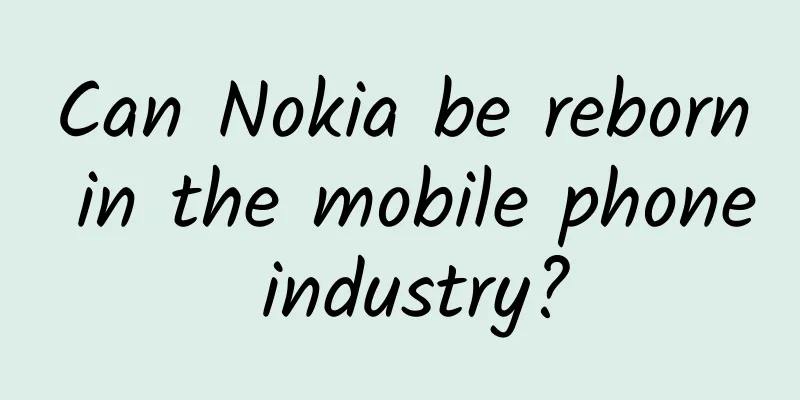Google scandal: Android secretly collects rival APP data to help its own competitors

|
When YouTube was planning to launch a competitor to short-video sensation TikTok in India earlier this month, employees turned to a valuable source of market research: how people in the country were using TikTok and its rival apps on Android, the mobile operating system controlled by YouTube’s parent company, Google. According to internal documents obtained by people familiar with the matter, this research is a mysterious Google project that has never been reported by the media. Google internally calls it Android Lockbox. For many years, Google has used this tool to collect sensitive data from competitors' software and selectively monitor users' interactions with non-Google applications. In some cases, the data has helped Google advance its own competing apps, such as its YouTube client in India, the people said, all of whom requested anonymity. Google employees can access information about rival apps, such as details about how often and when they are opened, though they need permission in some cases. They can also get location data about competing apps to get a general idea of how Android apps are used in certain countries. This is the type of information that third-party market researchers try to obtain, but is often difficult to obtain accurately. It is reported that the data collected by Google is anonymous and does not include any names or other personally identifiable information. A Google team called Magic Eye, whose primary purpose is to track global usage of Google’s own apps, also used Android Lockbox data from third-party apps to show executives how Google’s services were performing relative to competitors, according to two people with direct knowledge of the company’s apps. The Lockbox project dates back to at least 2013, according to the documents, and its functionality is made possible by Google Mobile Services, a bundle of popular apps and software owned by Google that comes pre-installed on most Android smartphones. The documents describe Android Lockbox as a "service that collects sensitive Android user data" that is available to all teams within Google. Google acknowledged that it can access usage data from other third-party developers' software through Android, but said it already provides similar capabilities to external developers. In a statement, Google said the data it collects on external apps is "exclusively obtained through an Android public software service" that it first launched in 2014. Through this so-called application programming interface, developers can access the same types of data as Google, but in smaller quantities because they can only see the data on devices where their own apps are installed (or given access). In contrast, Google can access information on any Android phone that comes with its apps pre-installed. Android phone makers can also allow other developers to access pre-installed apps until the user chooses not to share. Google said it uses data from third-party apps to "analyze and improve services," including a built-in feature of Android that redirects battery power to apps people use more frequently. A Google spokesperson said: "The API does not capture any information about in-app activity, and the data we collect is publicly available to users, who have control over it." The spokesperson declined to comment on how Google might use the data to compete with other apps. Antitrust challenges loom While Google has stressed that other apps can see the same type of data if they choose, collecting information from Android, the mobile operating system that powers more than 70% of the world's phones, to inform product decisions across the company could raise antitrust issues for regulators. Google has faced scrutiny or fines in the past for abusing its market dominance in web search and online advertising. Google CEO Sundar Pichai will testify before the House Judiciary Antitrust Committee on Monday alongside the leaders of Facebook, Apple and Amazon. Antitrust experts expect U.S. regulators to sue Google for anticompetitive behavior this year. Gene Kimmelman, former chief counsel for the Justice Department's antitrust division during the Obama administration, said a company using data from competitors on its platform to compete with them is a threat to hinder market competition and should be subject to a full antitrust investigation. "It's taking advantage of your advantage." The practice could also have implications for European Union regulators, who are investigating whether Amazon uses data from third-party sellers to launch competing products. In 2018, the EU fined Google $5 billion in part for bundling its search and browser apps with Android, a penalty the company has appealed. Facebook Case Using a variety of techniques to gather information about competitors can get some companies and their partners into trouble. In 2018, Google rival Facebook was told that its official software, the Onavo Protect app, violated Apple’s App Store policies after Apple discovered that a supposed virtual private network app actually secretly collected data about Facebook’s competitors. Facebook later shut down the software. Google’s software takes a different approach. When people install Google Mobile Services on an Android device, they can choose to share their third-party app usage activity with Google. Google tells users that opting in will give them a more personalized experience, including faster searches. But according to the internal documents mentioned above, the data also provides information for the Android Password Box project used for competition research. The documents say that if Android users don't opt in to sharing their other app usage data with Google, Google's access rights will be more restricted and user data can only be used to "improve the Android platform." In addition, the documents say the effort collects data from all third-party Android apps without requiring developers to opt in or add special tracking code to their apps. Some former Google employees said that Google employees can obtain high-level Android usage statistics within the company, such as the distribution of Android versions in different countries. But at least one former employee said that their requests for access to other competitor applications were denied. Some Google employees turned to third-party application analysis tools, such as App Annie, because they also integrate user data of applications on Apple devices. Google employees used internally obtained app data to monitor the use of Google's Gmail competitor on Android devices and to investigate how much time Android users spent on Facebook and Instagram, people familiar with the matter said. Patrick Jackson, chief technology officer of Disconnect, a digital privacy company that works closely with third-party software developers, said he was not aware that Google used information collected from Android to develop its own products, a practice that could make developers more cautious about developing on Android. "This is something that third-party developers don't really understand," he said. Google's ability to gain comprehensive visibility into how its Android app competitors are performing could give it an advantage, especially in emerging markets such as India where its mobile operating system is dominant. India banned some apps including TikTok last month, and rival products including Facebook rushed to fill the void. Facebook’s app usage in India increased by about 15% after the ban, according to a person familiar with the matter, and Facebook quickly deployed a short-video feature called “Reels” to Instagram. Meanwhile, YouTube is planning to launch its own TikTok short-video competitor, called Shorts. Android Lockbox captures the behavior of Indian Android users on TikTok and its competitors, which helps YouTube speed up the development of new software, a person familiar with the matter said. |
Recommend
All the bamboo shoots on the mountain have been taken! Are spring bamboo shoots really this fresh?
Audit expert: Shi Jun Doctor of Botany, well-know...
How to name your website? How to name a Google website?
The name and domain name of the website cannot be...
When writing copy, write something funny
The essence of copywriting is to achieve the desi...
Wang Xiao of Jiuhe Venture Capital: Is technology really just a job for the young?
[51CTO.com original article] The WOTA Global Arch...
How can Father’s Day brand copy capture user needs? Share 3 writing angles
How to use copywriting to capture the emotional n...
Using Cocoa Layout Instrument to inspect automatic layout
Some time ago, MarkD discussed with us many usefu...
What impact will the return of iPhone production to the United States have on Chinese mobile phone companies?
Not long ago, the newly elected President of the ...
Overseas video marketing promotion: YouTube influencer marketing guide!
YouTube is quickly becoming one of the most popul...
Difficulty of deep learning: The deeper the neural network, the harder the optimization problem
[[192056]] The core problem of deep learning is a...
Can I keep a pet for a half-year mission in space? 丨Young looks at the stars and chases dreams
Young looks at the stars, chasing the stars and p...
Case | Super practical SEM promotion case in the vocational training industry
This article shares with you the SEM promotion ca...
The universal formula for operating private domain traffic in offline stores!
How to create private domain for offline stores? ...
Is WeChat launching live streaming to challenge TikTok and Kuaishou?
During the National Day holiday, WeChat quietly l...
Lao Wang created a profitable headline account from 0 to 1
Lao Wang created a profitable headline account fr...
"Healthy eating" series | Is it easier to gain weight in summer? 8 ways to help you stay away from obesity
The hot weather in summer and the reduction of ou...









